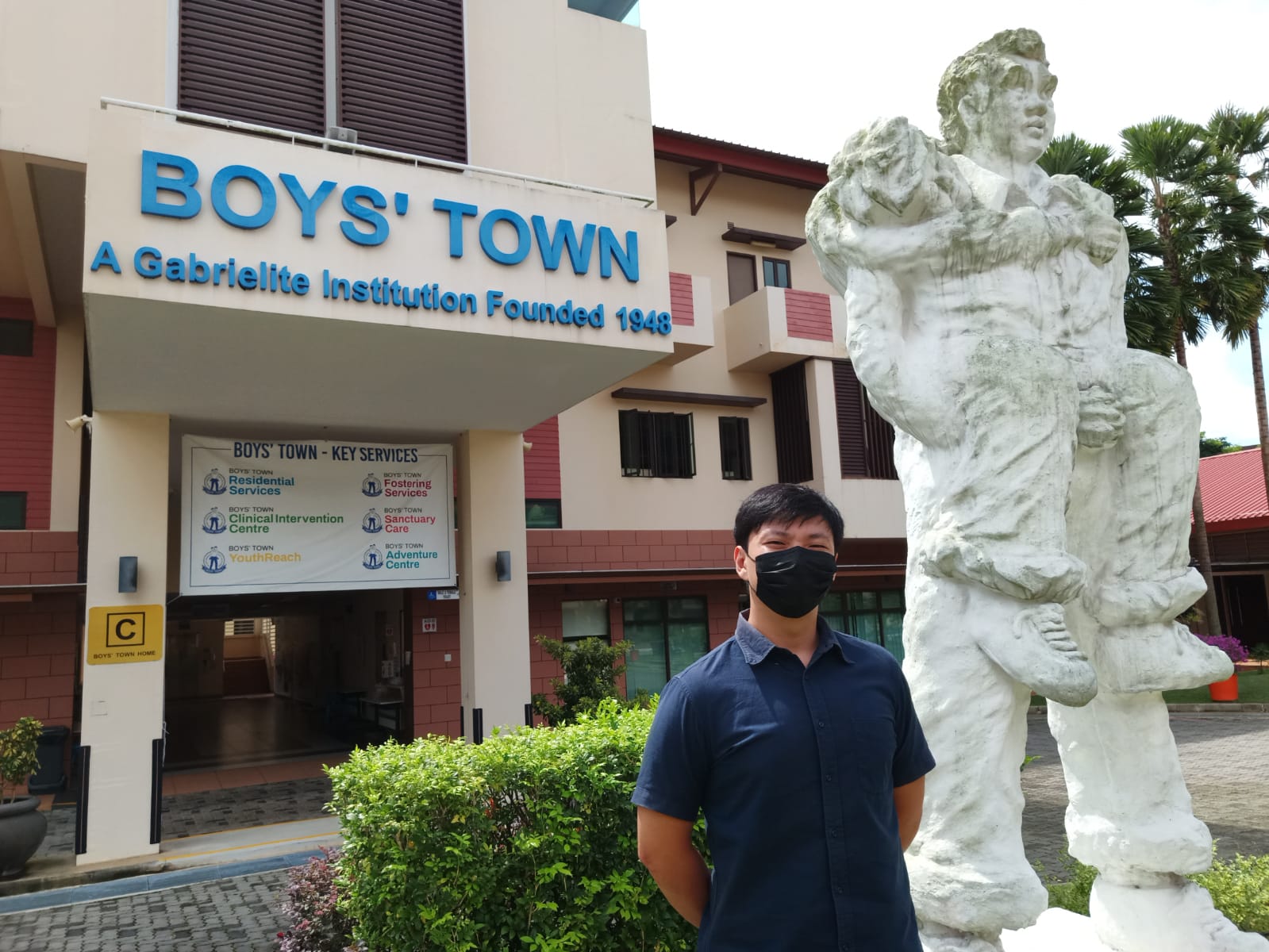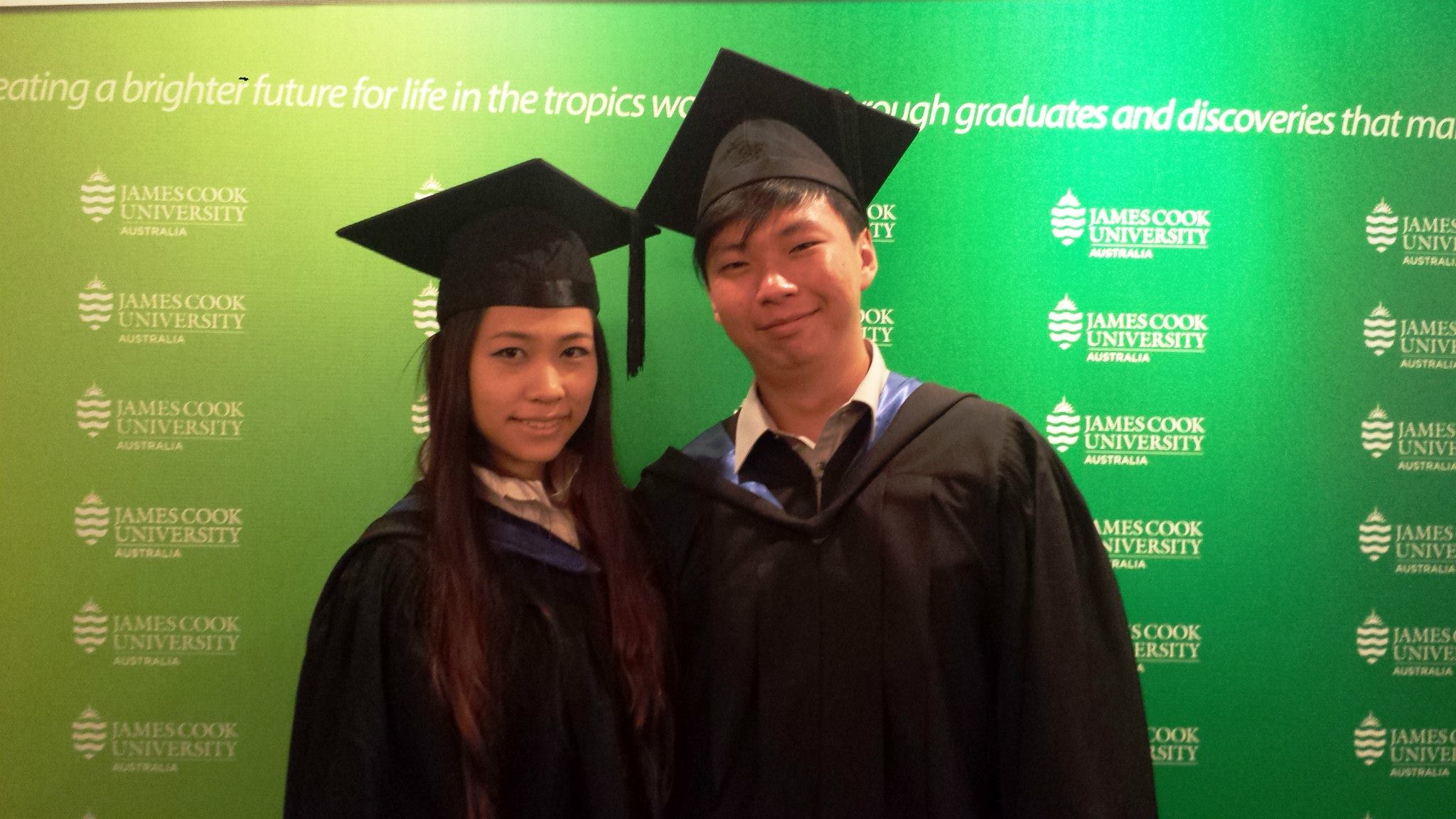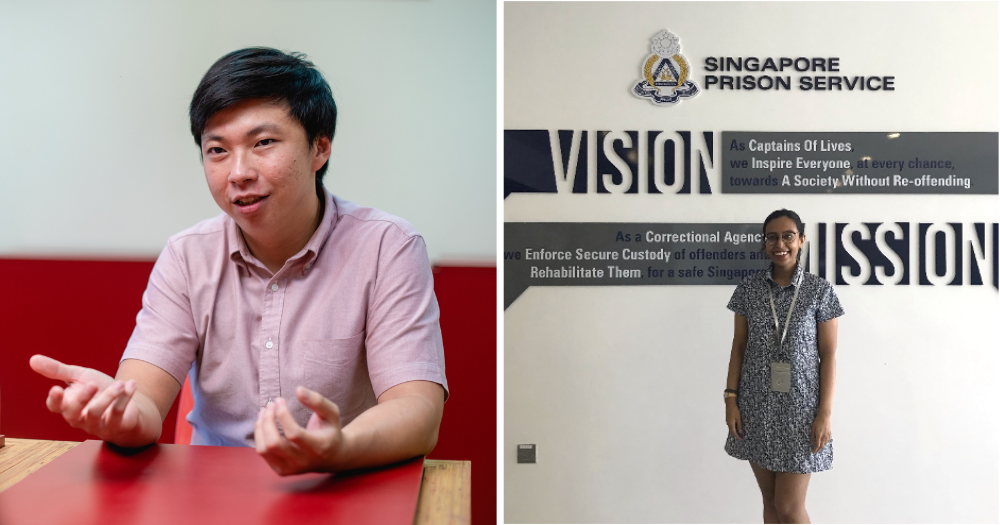“Like, ‘I’m just talking loudly. Why is that considered me being angry?’”
This is how a student might react to Benjamin Lio, a senior behavioural specialist at Boys' Town.
For the majority of the students that Lio works with, they may not see their behaviour as “throwing a tantrum"; instead, they may feel that they are just “expressing their views”.
 Photo courtesy of Benjamin Lio.
Photo courtesy of Benjamin Lio.
Working with youth on emotional literacy
Lio began working at Boys’ Town after graduating with a Bachelor of Psychology at The Singapore campus of James Cook University (JCU) in 2013.
As a senior behavioural specialist, his work involves him going down to schools for on-site intervention work. There, Lio observes and works with students who may be struggling with emotional issues or social skills development. Often, their actions also manifest as what looks like "bad" behaviour.
Through his time in this role, he realised that some kids might not be as comfortable sharing in one-on-one counselling settings.This is because they have the perception that they must have done something wrong if they’ve been referred to a counsellor, and are likely to become more closed off, Lio explains.
Thus, the school-based intervention and groundwork of observing them and then interacting with them in their own settings helps to develop that rapport:
“It gives us this little window of insight, to help us better understand the struggles and challenges that they are facing. And from there, we also provide on-site coping strategies and suggestions, mostly based on what they feel that they can do.”
So Lio's job, then, is to develop rapport with the student by showing them that he cares, and then working with them on understanding others’ perspectives and developing emotional literacy.
 Photo courtesy of Benjamin Lio.
Photo courtesy of Benjamin Lio.
Not just “bad people committing crimes”
For Nisha Saga, who has been working as a research officer with the Correctional Research Branch at Singapore Prison Service (SPS) since 2019, she is also no stranger to the importance of empathy when communicating.
 Photo courtesy of Nisha Saga.
Photo courtesy of Nisha Saga.
As a research officer, she speaks with inmates to get a better understanding of them, their struggles, and their rehabilitation needs.
Nisha, who also graduated from JCU with a Bachelor of Psychology (Honours) in 2016, which is now known as Bachelor of Psychological Science (Honours), finds that her work allows her to get a more nuanced picture of the reasons behind people’s life choices.
For instance, it isn't as simple as "bad people committing crimes", Nisha explains. Some may have been exposed to environments where they saw crime as the only option.
While it does not mean that they are not accountable for their actions, this is an unfortunate circumstance to be in:
"I don’t think that they’re all bad people. I think life is about choices, and sometimes when you make the wrong choice, it can take you down a path which you never expected.”
Misconceptions that others have
When it comes to working with prison inmates and youth who may have certain emotional or behavioural issues, both Nisha and Lio feel that people still hold some misconceptions.
For example, Nisha has been asked whether she is afraid of working with inmates, or if she fears going into the prison to work.
While acknowledging the societal stigma that inmates face, she emphasises that she has never felt unsafe while in prison working with inmates:
“I have positive experiences in my interactions with the inmates. They are respectful and cooperative during my interviews with them.”
The idea that those who have done “bad” things are more than just their behavioural issues is a sentiment shared by Lio.
Many of the students Lio encounters are impacted by factors such as their family background, their relationship with their parents, who their primary caregiver is, and more, he says.
“I would say that there’s a need to adopt a more wholesome approach to understanding the situation, rather than just thinking about what’s wrong with the kid itself.”
The term “at-risk” has often been used to loosely describe youth who are unsupervised or engage in delinquent activities, Lio says.
However, now it is being expanded to look also at the emotional risks that children and youth face, including mental health-related issues.
“People are actually giving more attention and space to recognising that there is more to their behaviours than just bad behaviours or tantrum-throwing. Because there are real background and history reasons as to why they react suddenly.”
No easy answer for rehabilitation
There's no simple answer for how rehabilitation happens successfully, nor are there easy steps for individuals like Nisha and Lio to "solve" the problem.
SPS currently focuses on rehabilitation in a number of ways, Nisha explains, such as counselling programmes, work programmes, and educational courses such as prison school. These aim to build resources for inmates, in order to help them successfully reintegrate into society, she adds.
“While there is an emphasis on discipline, prison is taking efforts to integrate rehabilitation and find the balance between the two. So, research is being put into identifying areas for improvement in rehabilitation interventions and reintegration into society.
[...] With one mistake that they’ve made, they continue to face struggles in reintegration for a long period of their lives. And I think that does have an impact on someone, as to whether or not they actually return to the life of crime.”
It's easy to say "stay away from people who are not positive influences", she explains, but it’s much more complicated than that:
“If those same people also offer them emotional support, or maybe understand them, then they’re more than just a negative influence.
It’s a source of comfort sometimes. They have other benefits, other than being someone who influences them.”
Other factors can include a person’s willingness and determination to change — “whether they are at that turning point where they say, ‘I’ve had enough’”, Nisha says.
“That’s the feedback that I’ve gotten from a lot of inmates, which is that at the end of the day, if they want to change, they will be the person making that change.”
“This is why I see value in the work that we do which contributes to SPS’s efforts to support the inmates throughout their rehabilitation process,” she adds.
For Lio, he knows that when it comes to clients dealing with deep-rooted issues, it isn’t realistic to expect that they can just “clap our hands and the problem will be solved overnight”.
“It’s also about understanding that while getting them to acknowledge the issue is one thing, whether they feel there is a need to change, that’s a whole new story.”
So, the important place to start is to understand what the problem is to begin with, and to work with the students in a collaborative way, by tackling what the students feel they want to address:
“My approach is that I believe in collaborating with and empowering my clients, to get them to see what they feel that they want to address as well.”
JCU gave the foundation for their work
Both Lio and Nisha credit JCU with developing the basis of their knowledge and providing the opportunities that helped to propel them into their current work.
For Lio, he had always been interested in human behaviour, even before his time at JCU.
“Like how people interact with each other. And why two people may see one situation, but how they think and how they act can be very different.”
JCU helped to hone this interest into skills that he now utilises every day.
 Photo courtesy of Benjamin Lio.
Photo courtesy of Benjamin Lio.
One module, Human Development, laid the groundwork by giving him a fundamental understanding of theories of human development. This has been particularly helpful, given that he mainly works with children and youth, he explains.
Another course, on counselling, gave him an insightful glimpse into whether counselling was something he would enjoy as part of his career. Together with his classmates, they role-played counselling sessions, and would give each other feedback on their counselling skills.
When it comes to her research, Nisha is grateful for the research skills that she developed at JCU — critical thinking, statistical analysis and being exposed to research processes — that created a strong foundation upon which she builds her work now, so that she can continue to do her part in contributing to correctional rehabilitation research.
 Photo courtesy of Nisha Saga.
Photo courtesy of Nisha Saga.
Nisha particularly appreciated how JCU gave her the opportunity to expand her horizons.
“JCU provides career and skills upgrading opportunities to their students which extends to its alumni.
In my final year, I remember receiving emails for research opportunities which I found was useful in gaining research experience and an understanding of research processes in a practical setting, which prepared me for the workforce.”
JCU's Inter-campus Mobility Programme allowed Nisha to study abroad for a semester in Australia at JCU's Townsville campus, giving her the chance to be exposed to different cultures and mindsets which helps Nisha in her work at SPS.
“It helps you build rapport, and helps you understand different perspectives as well.”
 Photo courtesy of Nisha Saga.
Photo courtesy of Nisha Saga.
Learn more about JCU Psychology by watching their Course Preview.
This sponsored article is brought to you by James Cook University.
Top photos courtesy of Benjamin Lio and Nisha Saga. Some quotes have been edited for clarity.
If you like what you read, follow us on Facebook, Instagram, Twitter and Telegram to get the latest updates.
